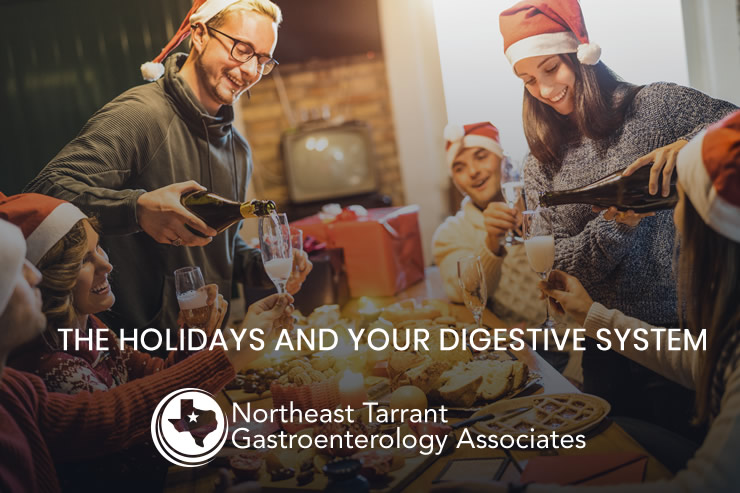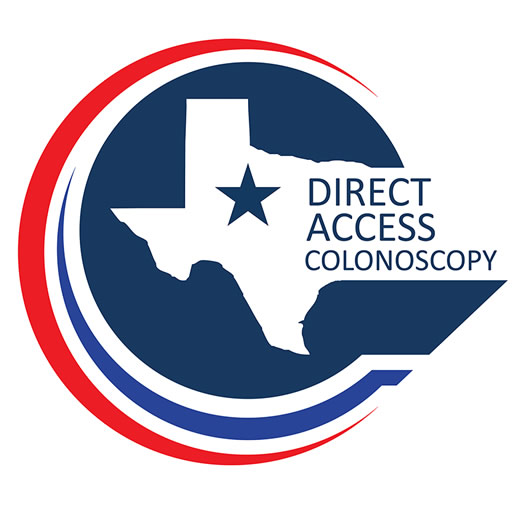THE HOLIDAYS AND YOUR DIGESTIVE SYSTEM
We’ve all been there: indigestion, nausea, bloating, bowel irregularity... No, it’s not the ever-dreaded “stomach bug”. Instead, it’s that most wonderful time of the year: The Holiday Season! From sugary treats to rich foods to abundant cocktails, our days and nights are frequently filled with tantalizing food and drink choices. Unfortunately, all of these palate-pleasing menu options aren’t nearly as pleasing to our digestive tracts. To find out more about how the Holiday Season wreaks havoc with our digestive system, please follow the link below:

Arguably, October through January represents one of the happiest times of year. Activities and culinary adventures abound: Fall carnivals.... Tailgate parties.... State Fairs.... Halloween.... Thanksgiving.... Christmas.... New Year’s Eve.... The list goes on and on. Unfortunately, while this time of year is so incredibly pleasing to our egos, emotions and taste buds, our gastrointestinal tracts aren’t nearly as thrilled with it. Why is that? What exactly is it about the holiday season that makes our digestive systems so miserable? The answers are plentiful:
- Excess Alcohol: Outside of the nausea and vomiting that frequently accompanies one too many cocktails, alcohol also increases issues with reflux and indigestion. Additionally, because of its diuretic effect, alcohol increases the risk of dehydration.
- Heavy Foods: Holiday fare is typically very high in calories (translation: loaded with sugar and fat). While pleasing to the palate, these foods can slow down digestion, resulting in increased reflux, bloating and sluggish bowels.
- Decreased Fiber: Holiday foods aren’t known for their particularly high fiber content (When was the last time you saw a bowl of Raisin Bran sitting in front of you as your Thanksgiving dessert?). Lack of dietary fiber can lead to issues with constipation which, in turn, results in bloating and abdominal discomfort.
- Excessive Portions: It’s really pretty simple, overeating creates increased stomach distention. This results in increased reflux, bloating and overall abdominal discomfort.
- Stress: Obviously, stress isn’t a food; however, it does impact our holiday diet and digestive system. Stress, in and of itself, can cause issues with nausea, indigestion and bowel irregularity. Additionally, too much holiday stress frequently results in episodes of binge eating and excess drinking.
Now that we’ve identified some of the problems with our holiday diets, how do we avoid and/or treat these issues? The answers are relatively simple and straight forward:
- Limit Alcohol Intake: As in any other instance, moderation is the key. Don’t overdo it.
- Drink Plenty of Water: Maintaining adequate hydration is essential to helping your intestinal tract stay regular. The water also helps counteract the dehydration that alcohol causes.
- Keep A Balanced Diet: If you know that you’ll be attending a dinner later in the evening where relatively rich and heavy food will be served, make sure to have a light and healthy lunch (lean meats with plenty of high fiber vegetables). This will help to keep your bowels regular.
- Eat Slowly: It takes almost a full 20 minutes from the time that you start eating for your brain to send out signals of fullness. You won’t tend to overeat if you take your time while you eat.
- Stay Active: Instead of laying down for an afternoon nap after that second helping of turkey & dressing, take a short walk outside. It also won’t hurt to try and stick as closely as you can to your regular exercise regimen when you have the chance.
- OTC Products: If all else fails, over-the-counter products may provide you with the relief you seek:
- GERD, Heartburn and Indigestion: Antacids (Tums, Rolaids, Mylanta, etc…), H-2 Blockers (Pepcid, Zantac and Tagamet) and Proton Pump Inhibitors (Prilosec, Nexium and Prevacid)
- Gas and Bloating: Simethicone-based products (Gas-X and Mylicon)
- Diarrhea: Imodium, Kaopectate and Pepto-Bismol
- Constipation: Stool softeners (Colace), Osmotic Laxatives (Miralax) and Stimulant Laxatives (Dulcolax and Senakot)
- Dehydration: Oral electrolyte solutions (Gatorade, Powerade and Pedialyte)
We hope the above information has been helpful. If you have any questions or feel that any symptoms you have may warrant further attention, please schedule an appointment with us. We look forward to seeing you!
CALL TODAY
817-284-2693


 Meet Dr. Mark Murray
Meet Dr. Mark Murray Meet Dr. Eric M. Hill
Meet Dr. Eric M. Hill Meet Dr. kevin Ho
Meet Dr. kevin Ho